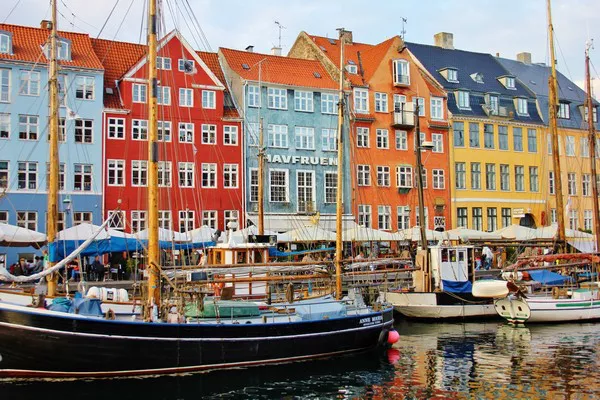In today’s fast-paced world, where the hustle and bustle of urban life often dictate our daily routines, finding a balance between work and leisure can be challenging. However, some cities around the globe prioritize quality of life and offer shorter working hours, allowing residents to enjoy more leisure time and pursue personal interests. In this article, we’ll explore the top 10 cities with the shortest working hours, where residents enjoy a better work-life balance and a higher quality of life.
Top 10 Cities with the Shortest Working Hours Worldwide
1. Copenhagen, Denmark
Copenhagen, the capital city of Denmark, tops the list of cities with the shortest working hours. Known for its progressive work culture and emphasis on employee well-being, Copenhagen boasts an average workweek of just 37 hours. The Danish approach to work-life balance includes generous parental leave policies, flexible working hours, and a strong focus on employee satisfaction.
2. Amsterdam, Netherlands
Amsterdam, the vibrant capital of the Netherlands, is renowned for its relaxed atmosphere and high quality of life. With an average workweek of around 30-35 hours, residents of Amsterdam enjoy ample leisure time to explore the city’s picturesque canals, cultural attractions, and lively neighborhoods. The Dutch value work-life balance and prioritize leisure activities, contributing to Amsterdam’s reputation as one of the top cities with short working hours.
3. Oslo, Norway
Oslo, the cosmopolitan capital of Norway, is known for its progressive social policies and high standard of living. With an average workweek of around 37 hours, residents of Oslo benefit from a healthy work-life balance and access to outdoor recreation opportunities in the surrounding fjords and forests. The Norwegian approach to work emphasizes flexibility and employee well-being, making Oslo a popular destination for those seeking a better quality of life.
4. Helsinki, Finland
Helsinki, the capital city of Finland, combines modern urban living with a strong connection to nature and the outdoors. With an average workweek of around 35-40 hours, residents of Helsinki enjoy a balanced lifestyle that prioritizes leisure activities and time spent with family and friends. The Finnish culture values work efficiency and effectiveness, allowing employees to complete their tasks within reasonable hours and enjoy their free time.
5. Paris, France
Paris, the romantic capital of France, is known for its rich cultural heritage, iconic landmarks, and vibrant lifestyle. Despite its bustling atmosphere, Parisians benefit from relatively short working hours, with an average workweek of around 35-40 hours. The French approach to work emphasizes the importance of leisure time, with long lunch breaks and ample vacation days allowing residents to savor the city’s culinary delights, artistic treasures, and scenic beauty.
6. Berlin, Germany
Berlin, the dynamic capital of Germany, is renowned for its creative energy, diverse culture, and laid-back vibe. With an average workweek of around 35-40 hours, residents of Berlin enjoy a healthy work-life balance that allows for plenty of leisure time. The German approach to work values efficiency and productivity, with a focus on achieving results rather than long hours in the office. As a result, Berliners have more time to explore the city’s vibrant neighborhoods, cultural attractions, and outdoor spaces.
7. Reykjavik, Iceland
Reykjavik, the capital city of Iceland, is known for its stunning natural landscapes, vibrant arts scene, and progressive social policies. With an average workweek of around 35-40 hours, residents of Reykjavik benefit from a relaxed work culture that prioritizes employee well-being and work-life balance. The Icelandic approach to work emphasizes flexibility and autonomy, allowing employees to manage their schedules and enjoy leisure activities such as hiking, skiing, and swimming in the city’s geothermal pools.
8. Sydney, Australia
Sydney, the cosmopolitan capital of Australia, is famous for its stunning harbor, iconic landmarks, and outdoor lifestyle. With an average workweek of around 35-40 hours, residents of Sydney enjoy a balanced lifestyle that combines work and leisure activities. The Australian approach to work values work-life balance, with flexible working arrangements and generous vacation time allowing employees to pursue their passions and interests outside of the office.
9. Zurich, Switzerland
Zurich, the financial hub of Switzerland, is known for its high standard of living, efficient public services, and picturesque surroundings. With an average workweek of around 35-40 hours, residents of Zurich benefit from a healthy work-life balance that prioritizes leisure activities and time spent with family and friends. The Swiss approach to work emphasizes punctuality, reliability, and efficiency, allowing employees to complete their tasks within reasonable hours and enjoy their free time.
10. Vancouver, Canada
Vancouver, the coastal city in British Columbia, Canada, is renowned for its stunning natural beauty, outdoor recreation opportunities, and diverse cultural scene. With an average workweek of around 35-40 hours, residents of Vancouver enjoy a balanced lifestyle that includes time for work, relaxation, and exploration. The Canadian approach to work values work-life balance, with flexible working arrangements and a strong focus on employee well-being contributing to the city’s reputation as a top destination for those seeking a better quality of life.
See Also: Africa’s 10 Least Populous Nations
Conclusion
In today’s fast-paced and interconnected world, finding a balance between work and leisure is essential for maintaining physical and mental well-being. The top 10 cities with the shortest working hours offer residents a higher quality of life, with ample time for relaxation, recreation, and personal pursuits. Whether it’s exploring cultural attractions, enjoying outdoor activities, or spending time with loved ones, these cities prioritize work-life balance and provide an environment where residents can thrive both personally and professionally. As more cities around the world recognize the importance of work-life balance, we can expect to see a shift towards shorter working hours and a greater emphasis on employee well-being in urban environments worldwide.
You Might Be Interested In:


























